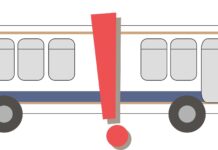Plant operations may adopt a new urban Canada goose management system this spring, after a proposal to use dogs to herd the geese on campus was tentatively accepted in December.
The proposal comes from Alex Harris, UW alumnus and operator of the UW Geese Police — a team made up of Harris and his border collie Rina.
“The geese have been an issue since before I arrived and their constant presence provided the inspiration for my study,” said Harris.
“It is important to note that a lot of our geese come onto campus in the early morning, and if Rina were allowed to come to work with me, most of the geese would not have a chance to land and establish a habit of feeding here. My goal is to have campus essentially clear of geese, well before most students even get to campus,” he said.
Dogs have been used to manage the geese on campus before, as part of Alex Harris’s thesis project. At that time, Plant operations was made aware of his activities and his dog’s presence on campus. The study proved to be an effective way to remove the geese from campus, so he continued to offer his services voluntarily to UW as the “Geese Police.” As an employee of Plant Operations, he hoped to incorporate this method of wildlife resource management, but he received resistance until recently.
“Problems with the geese are 90 per cent during nesting season. We are considering having him operate in the spring.” said Tom Galloway, director of custodial and grounds services.
During the spring, the geese begin nesting and laying eggs, becoming more aggressive and territorial. They often pose a physical hazard to students at this time, as geese have, in the past, nested near entrance ways and major walking paths on school grounds. Moreover, a majority of the UW geese are of the Giant Canada Goose species and typically weigh from 10 to 15 lbs.
“There are a slew of ‘goose problems’ that continually arise across campus as nesting season comes and goes. The geese destroy what little green space we have left on campus with their fecal deposition and render pathways covered,” said Harris. “This issue has in fact been identified by grounds services due to reports of goose feces being tracked into buildings, namely Health Services.”
Plant operations has collaborated with students who have run experiments on campus grounds in the past. According to Galloway, “Students want to use the campus as a classroom and we try to support that as much as we can.”
Yet, concerns arise when these theoretical projects expand into commercial ventures. The procurement policy on campus is very strict on commercial services which can be used at UW, and liability insurance is a major factor. Insurance is absolutely required to protect UW and Harris in the event that any damage is caused to campus, students, or faculty regardless of the dog’s calm personality.
“We’re trying to coexist with them,” said Galloway. “We oil eggs and move nests and some people disagree with that and believe we should leave them alone; then others believe that we’re not doing enough. The use of a dog or some other deterrent may have value.”































